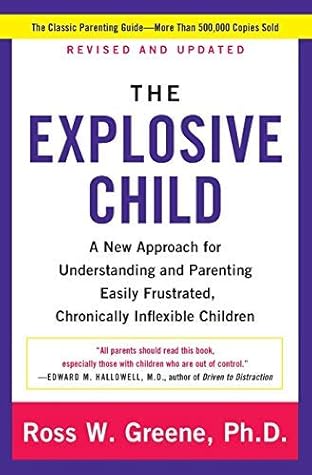More on this book
Community
Kindle Notes & Highlights
Read between
October 2 - October 13, 2023
who exhibit concerning behaviors are compromised in the global skills of flexibility, adaptability, frustration tolerance, emotion regulation, and problem solving.
If your kid could respond to problems and frustrations adaptively, he would. That’s because—and this is, without question, the most important theme of this entire book—kids do well if they can.
Kids who are having difficulty adaptively handling problems and frustrations are lacking the skills required for being proficient in handling problems and frustrations.
So, if you’re not focused on behaviors—rewarding the ones you like and punishing the ones you don’t like—how will your child’s behavior improve? By focusing instead on the expectations your child is having difficulty meeting.
But whether a child’s concerning behavior is lucky or unlucky, it’s communicating the exact same thing: I’m stuck . . . there’s an expectation I’m having difficulty meeting.
What skills is he lacking? The answer to that question will help you understand why your child is responding so poorly to problems and frustrations. What expectations is he having difficulty meeting? That’s going to help you know when your child exhibits concerning behaviors. If you identify those unsolved problems proactively, they become highly predictable. And if they’re highly predictable, they can be solved proactively rather than in the heat of the moment.
Plan B consists of three steps, each containing ingredients that are crucial to the collaborative resolution of problems: the Empathy step, the Define Adult Concerns step, and the Invitation step.
The Empathy step involves gathering information from your child to understand what’s making it hard for her to meet a particular expectation. The Define Adult Concerns step involves communicating your concern or perspective on the same problem, especially why it’s important that the expectation be met. The Invitation step is when you and your child work toward a solution that is (a) realistic (meaning both parties can actually do what they’re agreeing to do) and (b) mutually satisfactory (meaning the solution addresses the concerns of both parties).
“I’ve noticed that . . .” and ends with the words “What’s up?” In
Fair does not mean equal.
The school discipline program isn’t the reason well-behaved students behave well. They behave well because they can


